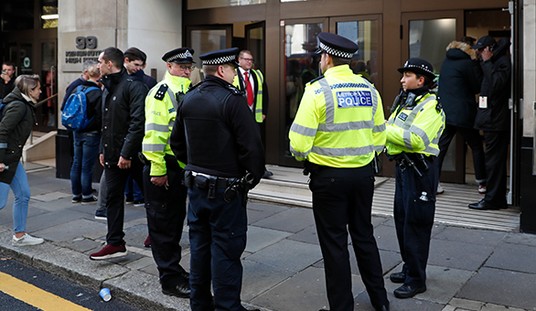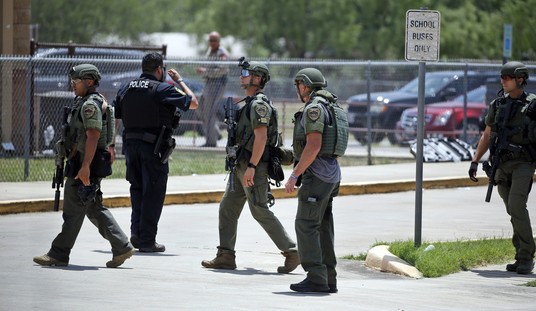George McGovern, one of the main if inadvertent inspirations for the Democratic superdelegate system, announced today that he will counsel Hillary Clinton to withdraw from the presidential race. Hillary had planned on campaigning in McGovern’s back yard of South Dakota tomorrow in advance of its June 3rd primary. McGovern’s announcement puts a further damper on her prospects after losing big in North Carolina last night, but McGovern’s plea for unity may fall on deaf ears anyway:
Former Sen. George McGovern, an early supporter of Hillary Rodham Clinton, urged her to drop out of the Democratic presidential race and endorsed her rival, Barack Obama.
After watching the returns from the North Carolina and Indiana primaries Tuesday night, McGovern said Wednesday it’s virtually impossible for Clinton to win the nomination. The 1972 Democratic presidential nominee said he had a call in to former President Clinton to tell him of the decision, adding that he remains close friends with the Clintons. …
McGovern’s announcement comes a day before Clinton was scheduled to travel to South Dakota to campaign. The state holds its primary June 3 with 15 pledged delegates at stake.
McGovern ran the notoriously ineffective 1972 presidential campaign that saw massive defections from the Democrats to the Republicans as Richard Nixon won a landslide re-election campaign. Based on that experience and the 1980 primaries, the Democrats retooled their delegate system to give 20% of the vote to its own unrepresentative establishment so that they could handpick a nominee in a close race. So far, though, the party establishment has done its level best to avoid doing just that twenty-four years later.
They may have bigger problems, anyway. According to both ABC and the Washington Post, the refuseniks among both factions in the party continue to grow, and the demographics look very problematic for Obama in a general election. Jake Tapper has a few talking points for Hillary that mostly reek of desperation, but a couple pose real questions:
5. Point to ugly exit poll data from Indiana showing 50% of Clinton supporters say they will not vote for Obama in the Fall.
6. Push back on Obama “achievement” in Indiana that he lost white women by only 61%-39% — as opposed to larger losses in Pennsylvania and Ohio. Argue: What kind of crazy worldview is this?
Jon Cohen and Jennifer Agiesta see something similar in the numbers from their exit polling:
Those who said Wright was a significant factor in deciding whom to support voted for Clinton by wide margins, with about nine in 10 whites who called the issue “very important” voting for her. But nearly as many voters called the matter “not at all important” to their vote — and those voters, white or black, went largely for Obama. The issue was further mitigated by the fact that about three-quarters of voters in Indiana and North Carolina said they made up their minds more than a week ago.
While the controversy over Wright did not appear to tip the balance in either contest last night, exit polls revealed fresh signs of fissures among primary voters.
Fewer than half of Clinton voters in both states said they would support Obama over McCain in the general election should that be the matchup. More than half of those backing Obama said they would be unhappy with Clinton as the party’s standard-bearer.
Bear in mind that these are Democrats being polled, and the division looks substantial, at least at this point. When Obama has to compete in a general election, how much more pronounced will these demographics get? If half of Hillary’s backers feel as, well, bitter about her loss now, at least some of them will remain unconvinced in the fall to support Obama.
The superdelegates have two bad options in front of them. They cannot win by splitting their coalition, but either choice will have that effect, according to a long series of polls. Frankly, under these circumstances, Obama is the better choice. He represents the future of the party, while the Clintons represent the past — and her coalition may be easier to woo back, even if not in this cycle. People don’t have the emotional investment in Hillary that Obama’s supporters have.
Die-hard Democrats will likely remain Democrats and stick with the party’s nominee. However, Obama has much less claim to centrists and independents on the basis of his record than either Hillary or John McCain, and Obama hasn’t shown any evidence that he has risen above partisanship in his legislative career. Expect McCain to highlight the difference between talk and action and grab the middle ground early. If he can do that, Obama could bring 1972 to life all over again.








Join the conversation as a VIP Member